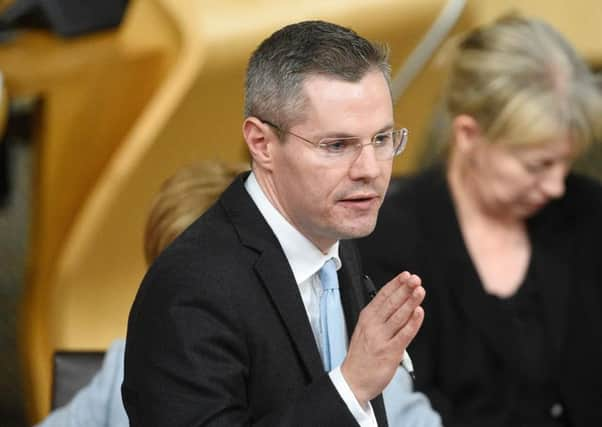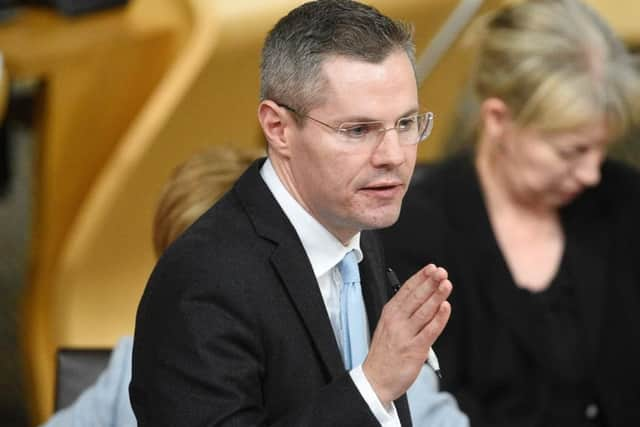Derek Mackay hit by near £1 billion black hole in Scots tax take


The country had lower economic growth than the rest of the UK, which resulted in a £940 million shortfall in the expected tax take in 2017/18, official figures today reveal.
Scotland's Finance Secretary Derek Mackay insists that tax revenues in Scotland are on the rise and that the country has a "more progressive" system.


Advertisement
Hide AdAdvertisement
Hide AdMuch of the shortfall will be offset through a "risk sharing" mechanism in the fiscal framework agreed when the new system was set up which means Holyrood will get a £737 million increase in its block grant from the Treasury that year. The "lag" in the tax figures feeding through means it will hit Holyrood's budget next year (2020/21).
It means the Scottish Government will have to manage a reduction in funding in 2020/21 of £204 million, although this is slightly lower than the £229 million predicted by the Scottish Fiscal Commission earlier this year.
“This helps to realise all the benefits of the Union as it provides Scottish ministers with substantial powers over taxes and spending for Scotland while still being supported by the broad shoulders of the UK.
“But with those new powers, Scottish ministers should take responsibility and focus on the decisions necessary to get Scotland’s economy growing faster to avoid shortfalls in tax receipts.”
Scottish ministers have powers to borrow up to £1.75 billion and a £700 million reserve to smooth funding pressures across financial years.
Scotland's financial watchdog, the Scottish Fiscal Commission had predicted a near £1 billion black hole in the Scottish Government's budget over the next tree years from 2020/2021 until 2022/2023.
The figures today show that income tax revenues did grow by 1.8% to £10.9 billion in 2017-18, with growth driven primarily by an increase in contributions from those earning above £43,000 in Scotland in 2017-18.
These statistics show that the Scottish Government’s choices on taxation are helping to create a more progressive tax system at the same time as our economy is growing with low unemployment.
Advertisement
Hide AdAdvertisement
Hide AdMr Mackay said: “Between 2016-17 and 2017-18, Scottish income tax revenue increased by £197 million, a growth of 1.8%, while the number of Scottish Higher and Additional Rate taxpayers combined, and the revenue paid by them, grew more quickly in Scotland than in the rest of the UK.
“These figures demonstrate that concerns taxpayers would relocate as a result of our tax policy choices were unfounded."